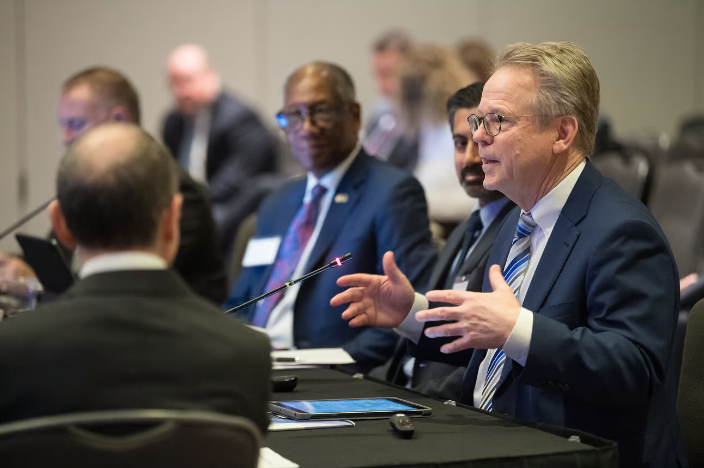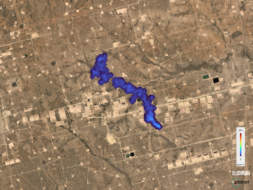The process of moving the nation’s space traffic management mission from DoD to the Commerce Department has been slow—but Richard DalBello told Payload that’s very much on purpose.
“There was an idea present when we started that somehow this would be simple,” DalBello, head of the Office of Space Commerce, said. “This is tremendously complicated…. There are some complicated boundary issues that we had to work out, that we’re still working out. How do you get information out of the DoD system in a way that ensures the integrity of what we’re getting, but also doesn’t compromise anything that may be behind the security wall?”
The history: Space Policy Directive-3, which former President Donald Trump issued in June 2018, ordered the Commerce Department to take over STM, including tracking objects in orbit and working with companies to avoid collision, which would free up the military to focus on national security missions.
Five years later, it’s still a work in progress. The long timeline has allowed the office to collect input from 100+ industry representatives to develop a step-by-step rollout for the traffic Coordination System for Space (TraCSS) that’s intended to minimize the impact of the new system on commercial business and ensure operators can still get access to the data they need with no interruption, DalBello said.
“The transition from DoD to Commerce isn’t like flipping a switch,” he said. “There are things people are relying on today that they need for day-to-day safe operations, so we have to stand up capabilities in a stepwise fashion and do those transfers carefully, one at a time.”
Around the world: It’s also critical for the US not to approach space situational awareness in a vacuum. DalBello said his office is working with international partners who are developing their own SSA systems, since a major disaster by one country in space makes it potentially more dangerous to operate in orbit for all. For example, the US conducted some technical work with the EU Space Surveillance and Tracking program that will be unveiled in a paper at AMOS this month, he said.
One major space player is missing, however. Despite China’s ambitious plans for megaconstellations and a crewed space station, the Office of Space Commerce has not had any conversations with Chinese counterparts on SSA.
“You can’t have people having a major presence in space and not communicating in a way that enhances safety, so it’s a challenge,” DalBello said. “SSA is an area that we haven’t entered into yet, but I think if we look at the future that it’s a dialogue that has to happen.”
Building momentum: The Office of Space Commerce had only a “handful” of staff when DalBello started in April 2022. Now, the office is in the midst of hiring to fill its 35 authorized positions, and DalBello said he expects that number to grow to well over 50 next year and beyond to meet the office’s growing space traffic management mission, in addition to more international advocacy and a robust regulatory portfolio.
DalBello also doesn’t seem worried that caps imposed by the budget deal for FY24 and beyond will impact how quickly the office can scale. “My issues truly are not partisan….There’s broad, almost universal support for the idea of commercial space and empowering US commercial companies,” he said.
More to come?: DalBello said he is “optimistic” that the office could see a “substantial expansion” of regulatory authority for novel space activities like satellite repair, debris removal, and lunar mining, though he stressed that the National Space Council’s review process on this issue is still ongoing and nothing has been decided. Still, he pointed to the office’s commitment to a “light-touch, flexible regulatory system,” in addition to expertise on standards, spectrum, and export control in the broader Commerce Department as evidence that the agency could be successful if it’s given additional authorities.
“The proof is in the pudding,” he said. “Overall, the department is ready, and we’ve shown we have experience….But at the end of the day, the process is the process.”





